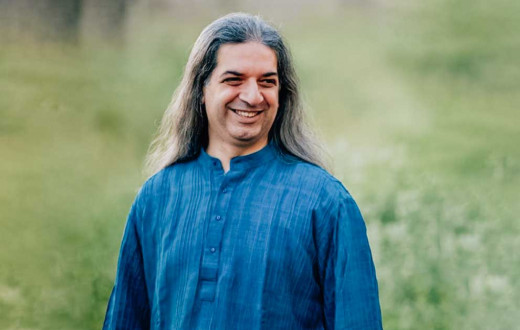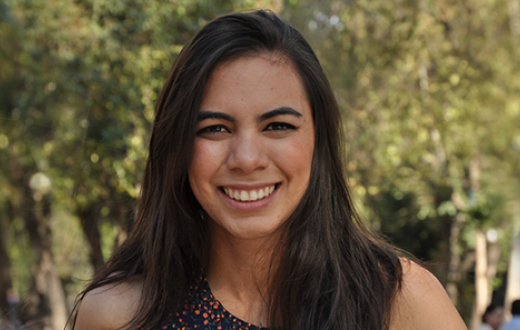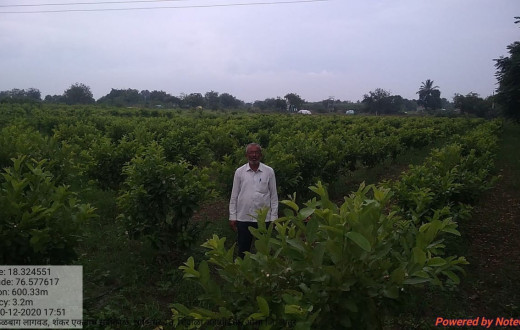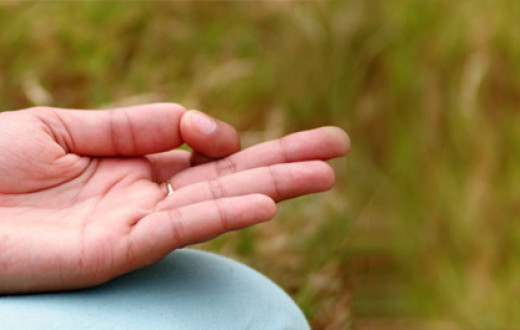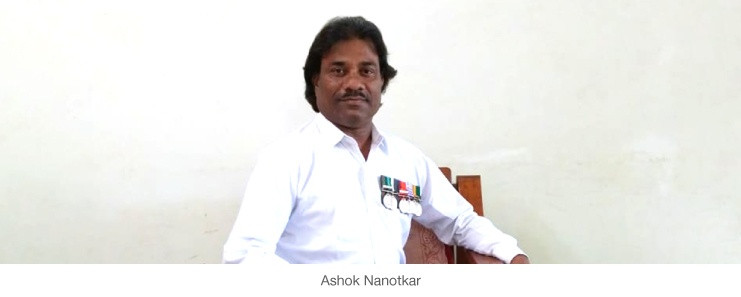
An army veteran empowers and inspires a part of rural Maharashtra.
It was 1 in the night when I received a call from some volunteers. A mob had wrecked our trenching machine. There were drunken men now waiting to direct their anger on someone alive. That is when I entered the scene. They began accusing us of a malicious purpose, punctuating their stream of accusations with succulent swear words. Their anger suggested that they could attack us too.
As an army veteran, I have seen such mobs before. I have heard them threatening to cut me to pieces. Yet, chasing such mobs away is easy when a squad of army men flash their rifles. But here, I was unarmed, unlike my former mob rendezvouses. This time, something else was going to save me.
In a voice louder than the crowd’s, I asked everyone to sit down. Some sat. Some did not. “I am going to chant. If you feel like it, listen or else it is up to you,” I found myself saying. With that, I sat on the ground, closed my eyes and sang a bhajan. The crowd fell silent. They now seemed like they were in a state to listen. I told them, “You all just acted out on hearsay and damaged the machine. Our team has lost Rs. 20-25,000 and the driver is injured too. Yet, we want to continue working here and revive the Nada river. Nobody in this village will face water scarcity after the project. Farmers will also be able to multiply their produce. If you still want us to leave, we will, but it will be your loss.”
Everyone fell silent now. I felt my anticipation fill the following moments. Just then a voice from the crowd exclaimed, “We apologize. We are with you!” Many joined in agreement. We were going to continue our work, all right. I and my team spent the next couple of days working under a 40 degree sun to build recharge structures, which ensure that rainwater does not run off but seeps into the ground instead.
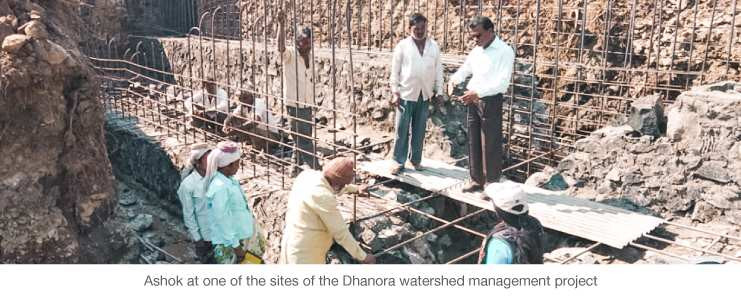
The rigor and discipline with which we worked was much like in the army, where you cannot give an excuse for not completing a task. Be it Siachen’s biting cold or the battlefield with no food and water, we would continue working. I loved this discipline. I had never thought that I'd be using the same discipline to drive change in rural India after my retirement. It all started with that one Art of Living program that I vehemently resisted attending.
From the battlefield to the yoga mat

In 2004, I took voluntary retirement from the army after serving for 19 years. My term in the army had given me the opportunity to be a part of some of the most important missions in history including Operation Blue Star and the Kargil war. It had been a satisfying term. About a month into retirement, an aunt nudged me to attend The Art of Living Happiness Program. I was sceptical. But then, who has ever been able to say ‘no’ to a nagging aunt?
But thanks to her, my life was about to get a second innings. Sudarshan Kriya made me a more positive person. I even quit drinking, something I had picked up in the army. It gave me a vision of what life could be like for me and others. I decided to volunteer for these programs, organizing them in slums, villages, and towns in Maharashtra. I could see these programs transforming the rural youth. Addicts became sober. Uninspired youth turned into inspirations for others. I found a mission to serve the nation again - this time with the yoga mat.
As the years rolled by, I got involved in The Art of Living's social projects. The ground strategy of all of these projects involves inspiring communities to take action with Youth Leadership Training Programs. As I conducted these programs, I literally saw meditation and breathing techniques taught in these programs pave way for newly-built toilets and revived water bodies. You probably wonder how. Let me share a story.
When water helped a man find a bride
Just a few days before our trenching machine was mobbed, a young man named Pradeep came to me with an unusual problem. He had just completed a youth leadership training program with me. He told me that no girl wanted to marry him because of the continuous drought in his village.
I remembered the time when I, born into an agricultural household, could not get into the army because I was not tall enough. Interestingly, we can easily change god-given body heights with exercises but apparently not the water status of where we stay.
I asked him to join our watershed development project in Dhanora, which could solve the water issue in his region. He was reluctant, mainly because I told him about having to be available 24-7.
Eventually, he agreed. Like the rest of the team, Pradeep worked hard in the heat and the cold to build the recharge structures for the project. Also, like the rest of the team, he regularly practiced yoga, meditation, and techniques which he had learned in the program.
In a few months time, the Nada river was flowing and water was available throughout the year in Pradeep's village of Dhanora. Pradeep is now hailed as a hero by the locals, and he recently got married. Later, he told me that he had thought that we were crazy to have worked in such conditions and he had been crazier to have joined our team!
This collective craziness got 3,000 people in the region drinking water and increased the produce of 2,000 farmers by 20-22 percent.
As an army man, I have worked on zero sleep for long hours. My strenuous training had helped me, of course. After seeing that same enthusiasm for work in these youngsters, I can only guess what kept them going. Perhaps their unique, spiritual training.
Building heroes, building communities
I did not find these heroes overnight. It took months of community-building activities including the Youth Leadership Training programs (YLTP). In Dhanora, where we built 130 toilets, we ensured that the community took ownership. They dug the pits for the toilets themselves and supervised the toilet construction. Yet, a few months ago, they did not even want toilets. The awareness sessions in our meditation-focused, community empowerment programs are what brought the shift.
Over the months, many from these communities joined the watershed development project. The communities not only participated for change but also changed as people. Many moderated their drinking, there were fewer fights in these villages, and an increased sense of brotherhood.
Recently, I recommended 15 girls from a nearby tribal village to join a skill development program by The Art of Living. The families felt grateful. And so did I. For I have been able to serve the nation even after my army days are over.
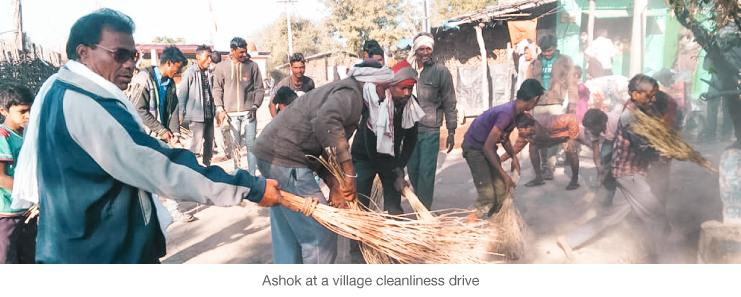
As told to Vanditaa Kothari
Know more about our youth leadership training programs here.



